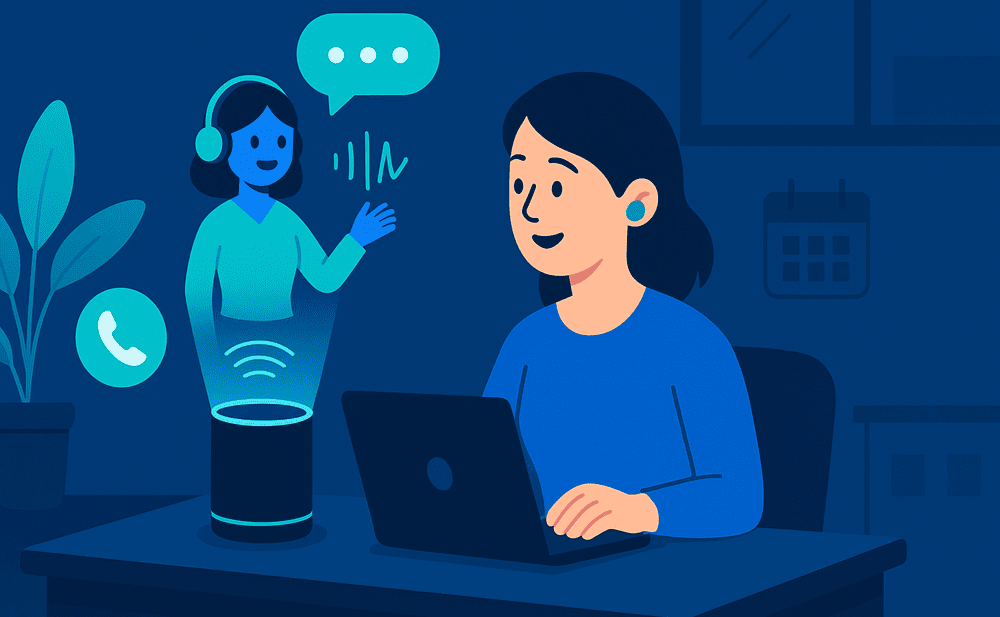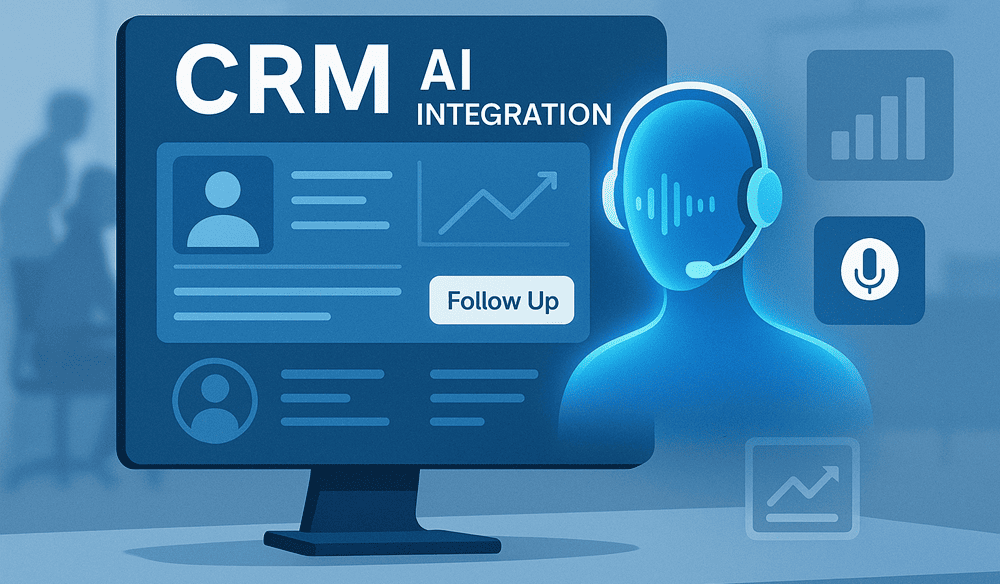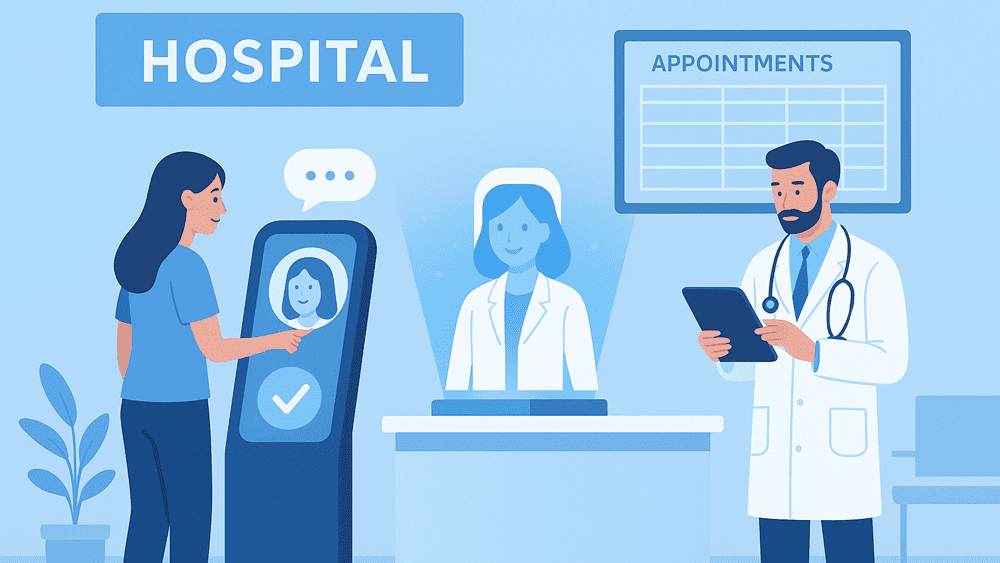Healthcare has always been about time — how quickly patients can be seen, how efficiently staff can manage resources, and how reliably doctors can keep up with growing demand. Traditional phone-based scheduling, often managed by human receptionists, struggles to keep pace with modern patient expectations. This is where AI medical scheduling steps in, offering clinics and hospitals a reliable, round-the-clock solution to improve access and reduce wait times.
In this article, we’ll look at how AI voice agents are transforming appointment booking, why hospitals and clinics are adopting it, and what benefits it brings for both patients and providers.
What is AI Medical Scheduling?
AI medical scheduling refers to the use of artificial intelligence systems that handle appointment booking, reminders, rescheduling, and patient follow-ups. Instead of relying on a busy front desk or call center, these systems can:
- Answer patient calls 24/7
- Book or adjust appointments instantly
- Handle high call volumes without delays
- Reduce scheduling errors caused by human oversight
Think of it as a digital extension of the clinic receptionist — a system that never takes breaks, never forgets, and can engage patients in natural conversations.
Why Healthcare is Moving Toward Automation
Scheduling has long been one of the most resource-draining activities in hospitals. According to healthcare industry data, over 30% of patient calls to clinics are related to appointments. When staff members are occupied with scheduling, they have less time for urgent tasks like coordinating with physicians or managing patient records.
With patient appointment automation, hospitals and clinics can reduce this administrative load while also offering patients a smoother experience. In fact, studies show that patients are more likely to stay loyal to a provider that offers easy scheduling options — whether through calls, apps, or voice assistants.
Benefits of AI Medical Scheduling

1. Around-the-Clock Availability
Unlike human receptionists who work limited hours, AI receptionists operate 24/7. Patients can call at night, on weekends, or during holidays and still secure an appointment.
2. Reduced No-Shows
AI systems send automated reminders and allow patients to reschedule if needed. This helps reduce the number of missed appointments, which cost healthcare providers billions each year.
3. Cost Savings for Clinics and Hospitals
Hiring full-time reception staff for large hospitals can be expensive. By integrating a clinic receptionist AI, organizations can cut down on staffing costs while maintaining consistent service quality.
4. Improved Patient Satisfaction
Patients no longer need to wait on hold for 20 minutes to book a routine visit. With healthcare voice scheduling, they get fast, clear, and personalized assistance.
5. Integration With Other Systems
Modern AI tools don’t just handle calls. They can be integrated into electronic health records (EHRs), CRMs, and other hospital management platforms for seamless data flow. This is where ai voice agent integration plays a significant role.
Example: Hospital Call Bot in Action
Imagine a busy Monday morning at a large urban hospital. The phone lines are buzzing, patients are calling to confirm or change appointments, and staff are stretched thin.
With a hospital call bot in place:
- Patients are greeted by an intelligent voice assistant.
- The system verifies patient details through secure authentication.
- Appointments are scheduled or rescheduled instantly.
- The system sends a confirmation text or email.
This not only speeds up the process but also ensures accurate data entry, reducing double bookings and errors.
AI Medical Assistant: More Than Scheduling
Scheduling is just the start. An AI medical assistant can support:
- Prescription refill requests
- Follow-up calls after discharge
- Pre-appointment questionnaires
- Reminders for preventive checkups
This added support ensures patients feel guided throughout their healthcare journey, not just at booking time.
How AI Enhances Staff Efficiency

Front desk staff often juggle multiple responsibilities — answering calls, greeting patients, handling paperwork. Automating scheduling gives them time to focus on higher-value tasks, such as patient care coordination.
This shift also reduces burnout, which is increasingly common among healthcare workers. By letting technology manage routine scheduling, clinics can improve job satisfaction and staff retention.
Comparison: Traditional vs AI Scheduling
| Feature | Traditional Scheduling | AI Medical Scheduling |
| Availability | Limited to office hours | 24/7 support |
| Error Rate | Higher due to manual entry | Minimal with automation |
| Cost | Requires more staff | Lower long-term cost |
| Patient Experience | Waiting on hold | Instant, convenient booking |
| Scalability | Limited by staff capacity | Handles unlimited calls |
Future of AI in Healthcare Scheduling
The future of healthcare will involve more automation, not less. As systems become smarter, they will anticipate patient needs before a call even happens. For instance, an ai voice assistant may proactively remind a patient that it’s time for a check-up or follow-up.
Healthcare leaders are already preparing for the future of voice AI, where these tools will not only book appointments but also answer medical FAQs, triage patients, and connect them to the right department instantly.
Getting Started with AI Appointment Scheduling
For clinics and hospitals considering this technology, the first step is choosing the right partner. Look for solutions that:
- Offer smooth ai appointment scheduling across phone, web, and mobile
- Have proven accuracy in medical contexts
- Provide ai voice agent support with natural, human-like conversation
- Can integrate with existing patient management systems
Once implemented, the shift is almost immediate: fewer bottlenecks at the front desk, happier patients, and more efficient operations.
Final Thoughts
The healthcare sector can no longer rely solely on manual scheduling methods. With growing patient demand, staffing challenges, and rising operational costs, adopting ai medical scheduling has become more necessity than option.
By embracing patient appointment automation, hospitals and clinics not only save time but also offer patients the modern, seamless experience they expect. Whether through a clinic receptionist AI or a hospital call bot, the transformation is already underway — and those who adapt early will stay ahead.
AI doesn’t replace human care. Instead, it enhances it by ensuring patients and staff spend less time managing logistics and more time focusing on what truly matters: health.


